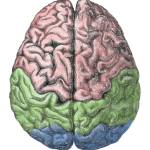
Jan 22, 2015 What is Brain-Based Learning? Excerpt from Inspired Educator, Inspired Learner
Over the next month Wood N Barnes Publishing Company is offering a series of excerpts from my new book that combine research and educational theory with practical strategies to increase engagement. The first lays a foundation for upcoming articles and activities by exploring What is Brain-Based Learning?
Jennifer Stanchfield’s new book Inspired Educator, Inspired Learner connects the dots between experiential education, brain-based research, differentiation, social-emotional learning, 21st century career readiness, and a strength-based attitude toward teaching and group facilitation. Jen brings these enduring ideas and the research that supports them together, offering practical and meaningful ways to engage learners and create lasting lessons. The heart of this book is to bring joy to learning and teaching; educators will find ways to build respect and compassion for learners and increase a sense of empowerment, belonging and fulfillment in learning. Over the next few weeks, we will be offering a few excerpts from the book. These posts explore these enduring educational principles and the science that supports them as well as practical activities and strategies to apply these ideas in your teaching or group facilitation.
Excerpt One: It is an exciting time to be an educator; especially one who believes in experiential approaches to teaching and asserts that an educator’s role is to take into account the whole person, preparing him or her for an active and productive role in society. A century ago, educational philosophers and scientists such as John Dewey, Alfred North Whitehead, Lev Vygotsky, and Jean Piaget put forward the idea that learning should be more than just imparting knowledge. These philosophers promoted what I think of as a commonsense approach, emphasizing that successful teaching and learning require meaningful experiences and interaction with others in an environment that intentionally encourages collaboration, problem solving, inquiry, and reflection. They believed effective teaching influences the whole person— emotionally, physically, socially, and intellectually—and that educators should engage learners in relevant experiences that relate and connect to real life, preparing them to be active members in a democratic society. These ideas put forward nearly a century ago are now being supported by scientific studies of the brain and how people learn, retain, and apply information.
What is Brain-Based Learning? How can information from the field of neuroscience impact my teaching? There is no scientific study more vital to man than the study of his own brain. Our entire view of the universe depends on it. —Francis H. C. Crick (from Scientific American, September, 1979) The brain-based approach to teaching aims to help educators find the best research on teaching, learning, and the brain and apply that knowledge in their day-to-day practices to improve learning experiences and outcomes. In the past, there has been minimal focus on brain development, structure, and function as part of education training. Interaction between educators and neuroscientists has been rare.
Brain-Based approaches to teaching and group facilitation can be defined as the intentional use of strategies that are based on recent research on the brain and learning. Educational Neuroscience is known by many as the field of mind, brain, and education. This field pulls together scientific research from neuroscience, cognitive neuroscience, educational psychology, education theory, education technology and other fields to promote evidence informed teaching approaches. Proponents of this field believe that research on the brain and learning can be applied to education in a practical and meaningful way (Goswami, 2004). During the past 20 years, especially the last ten, brain research…to read more of this article visit the Wood N Barnes Publishing Co. Experiential Education Blog.






No Comments